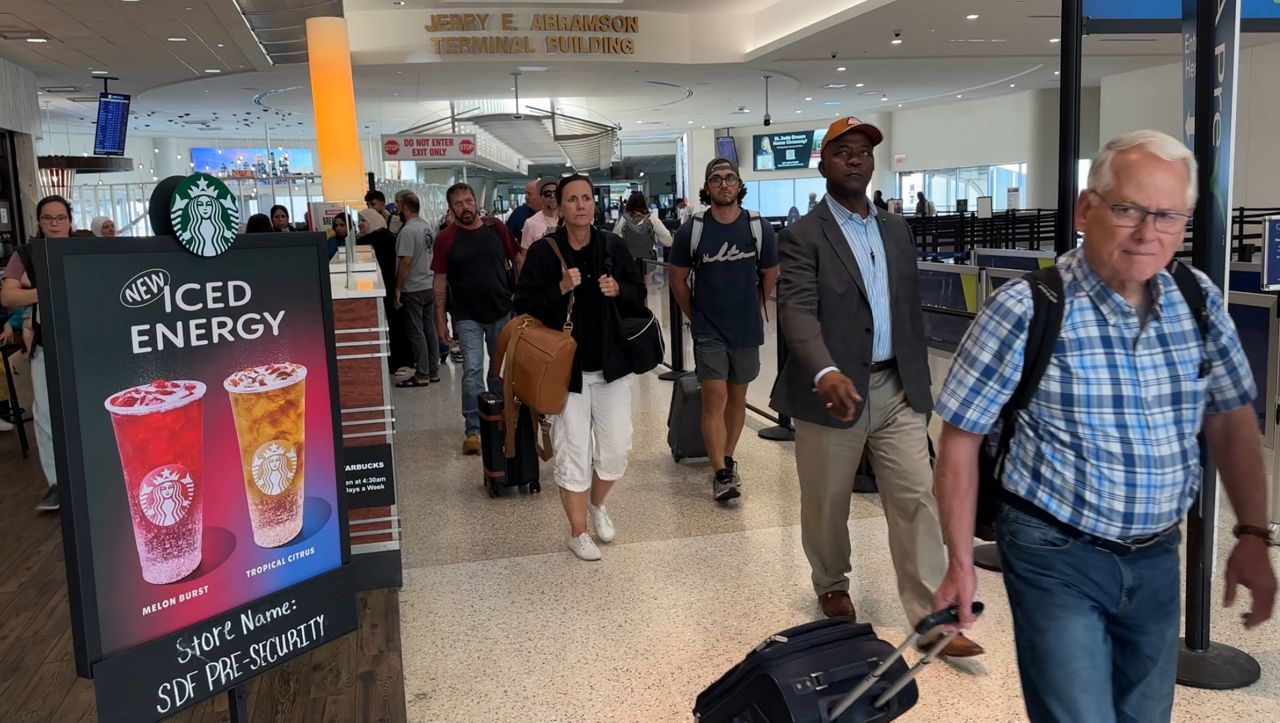On Wednesday, Vice President Kamala Harris convened a meeting with civil rights and labor leaders to discuss the challenges posed by artificial intelligence.
It’s just the latest in a string of events this week that has put the vice president at the forefront of the administration’s domestic policy priorities while President Joe Biden is abroad shoring up international relations at the NATO summit. It also comes as the 2024 campaign kicks off in earnest.
Earlier this year, Harris faced questions ahead of Biden’s re-election announcement whether she was the best messenger of the administration’s priorities. But since Biden made his announcement in April, Harris has been front and center amid the administration’s push on domestic policy.
Over the last several weeks Harris marked the anniversary of the Supreme Court overturning the right to an abortion with a reproductive rights rally in North Carolina, spent time with small business leaders in California, met with tribal leaders of the Gila River Indian Community and touted the administration’s infrastructure work.
In just the last several days, Harris has been holding round tables and announcing policy while the president was abroad. On Tuesday, Harris announced the administration is capping child care co-pays at 7% of income for families benefiting from federal child care assistance.
She also hosted a roundtable celebrating the 33rd anniversary of the Americans with Disabilities Act, discussing the barriers still facing Americans when it comes to equal access to transportation.
“Every person in our nation has a fundamental right to participate fully in our society and to determine their own future. The right to self determination, the right to dignity. And we as members of civil society have a duty. It is not about a whim or a desire, but a duty to ensure that that promise is a reality for all people in our country,” said Harris. “People with disabilities still face incredible challenges in participating fully in our society. And we have to be responsible and truthful about where we are and what we must do.”
Harris also teased an announcement “soon” of a solution to the fact that a majority of domestic flights do not have accessible restrooms among other accessibility issues.
Then on Wednesday, she gathered a roundtable focusing on risks related to artificial intelligence. Harris reaffirmed the administration’s commitment to protecting Americans from harm and discrimination from AI, particularly the elderly.
“I've done a lot of work through my career, predominantly as a prosecutor, being concerned about the vulnerability of our seniors and the need to ensure that they have any information that it’s important to equip them with the ability to not fall prey to predators,” she told the panel gathered. “It is about establishing protections, knowing that certain people will be targeted based on their socioeconomic status based on their race, based upon their disability status.”
Last fall, the Biden-Harris Administration published their blueprint for an “AI Bill of Rights” in an attempt to safeguard Americans’ rights and safety, and U.S. government agencies have ramped up their efforts to protect Americans from the risks posed by AI, including through preventing algorithmic bias in home evaluation and leveraging existing enforcement authorities to protect people from unlawful bias, discrimination, and other harmful outcomes.
The president’s absence has allowed Harris an opportunity to improve her standing with voters. She faced backlash earlier this year for high staff turnover. And as of June 30, the polling aggregator FiveThirtyEight found an average of just 39.2% of those surveyed in multiple polls approved of Harris, while 51.3% view her unfavorably.
But her role as vice president has been in some ways more consequential than most. On Wednesday evening, Harris cast her 31st tie-breaking vote in the closely divided Senate, matching the most by a vice president in U.S. history.
The Associated Press contributed to this report.








